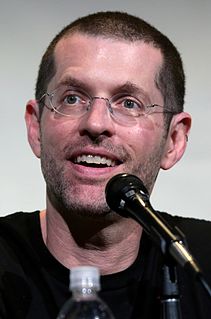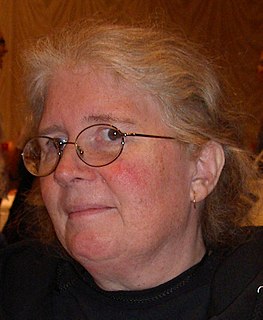A Quote by Peter Singer
History is not going to look kindly on us if we just keep our head in the sand on armed autonomous robotics issue because it sounds too science fiction.
Related Quotes
Science fiction is the most important literature in the history of the world, because it's the history of ideas, the history of our civilization birthing itself. ...Science fiction is central to everything we've ever done, and people who make fun of science fiction writers don't know what they're talking about.
I define science fiction as the art of the possible. Fantasy is the art of the impossible. Science fiction, again, is the history of ideas, and they're always ideas that work themselves out and become real and happen in the world. And fantasy comes along and says, 'We're going to break all the laws of physics.' ... Most people don't realize it, but the series of films which have made more money than any other series of films in the history of the universe is the James Bond series. They're all science fiction, too - romantic, adventurous, frivolous, fantastic science fiction!
'Confederate,' in all of our minds, will be an alternative-history show. It's a science-fiction show. One of the strengths of science fiction is that it can show us how this history is still with us in a way no strictly realistic drama ever could, whether it were a historical drama or a contemporary drama.
I don't think humanity just replays history, but we are the same people our ancestors were, and our descendants are going to face a lot of the same situations we do. It's instructive to imagine how they would react, with different technologies on different worlds. That's why I write science fiction -- even though the term 'science fiction' excites disdain in certain persons.
I think the least important thing about science fiction for me is its predictive capacity. Its record for being accurately predictive is really, really poor! If you look at the whole history of science fiction, what people have said is going to happen, what writers have said is going to happen, and what actually happened - it's terrible.
I'm just interested in science, and I try to keep track of what's going on and get my head around it - inflation, the multiverse, whatever. It's very hard for me because I don't have a scientific background, and I wasn't any good at science at school, but all of that stuff I just find incredibly attractive and fascinating.
This is our most complete record by far. A Hundred Million Suns sounds like the marriage of everything we learned from the Jeepster years and the Fiction years made into something new and bolder. Our spikiness and our indie-ness are coming through again with all the poppiness of the last two records. There's a lot of melody here and you can't cloak that whatever you do with it. This album is touched by our entire history, and hopefully sounds like our future too.
Science fiction is a weird category, because it's the only area of fiction I can think of where the story is not of primary importance. Science fiction tends to be more about the science, or the invention of the fantasy world, or the political allegory. When I left science fiction, I said "They're more interested in planets, and I'm interested in people."







































